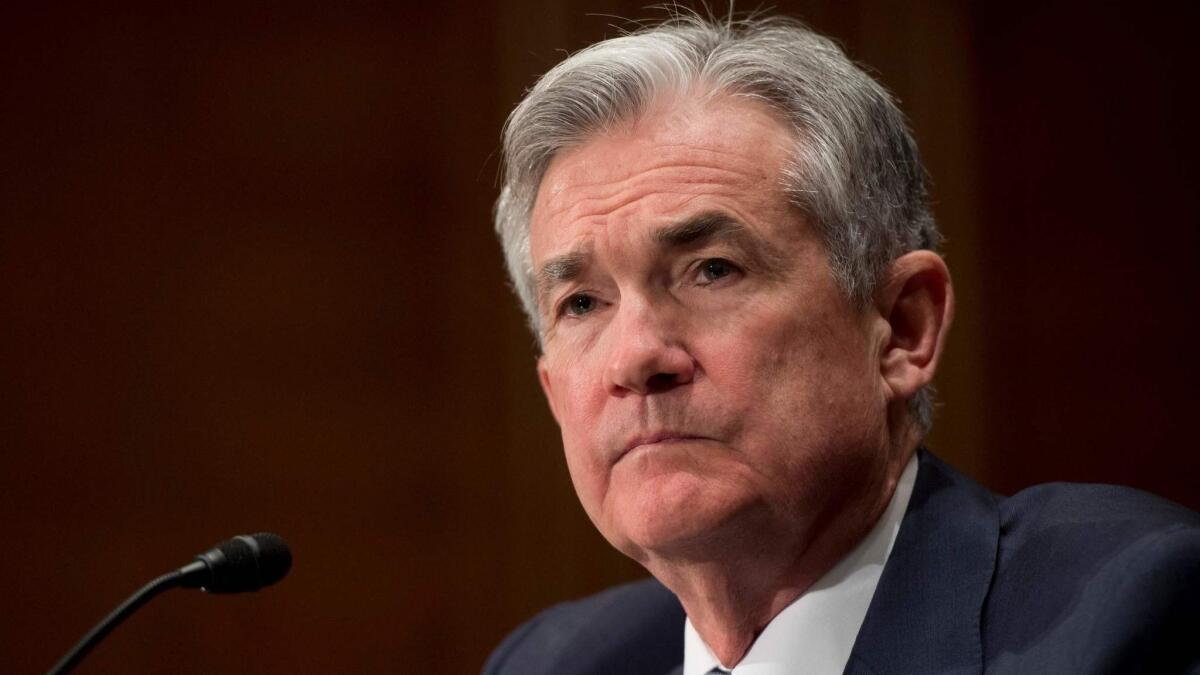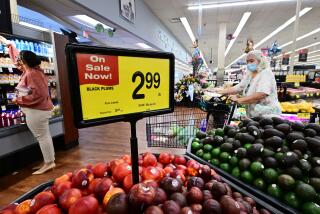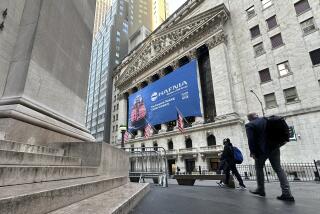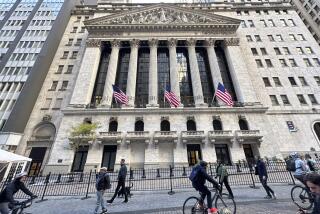Fed holds key interest rate steady among rising inflation and fears of a global trade war

Federal Reserve officials on Wednesday held their key interest rate steady despite rising inflation and fears of a global trade war triggered by President Trump’s tariffs.
After a two-day meeting, Fed monetary policymakers voted 8-0 to keep the central bank’s benchmark short-term rate at between 1.5% and 1.75% even as they noted inflation now is running near the central bank’s target.
In their policy statement released Wednesday, Fed officials indicated they don’t expect inflation to rise too high.
They had raised the rate .25 percentage point at their last meeting in March — the second hike in four months — and signaled two more small hikes were coming this year.
But Fed policymakers were nearly evenly divided in March on whether they anticipated three more hikes this year as the economy has continued to improve and inflation is moving up. Analysts expect another hike is coming at the next meeting in June.
In Wednesday’s statement, Fed officials said that inflation had “moved close” to the central bank’s annual 2% target.
On Monday, the Commerce Department reported that inflation using the Fed’s preferred measure reached 2% for the 12-month period ended March 31. It had been more than a year since inflation, as measured by the price index for personal consumption expenditures, was at that level.
The core price index, which excludes often volatile food and energy, was at 1.9% for the same period. Those developments led policymakers to note in their statement that inflation “is expected to run near” the 2% target in the coming months.
Fed policymakers have raised concerns that rising inflation is a sign the economy could start overheating, particularly after the stimulus of the recently enacted tax cuts. Higher interest rates would help tamp down inflation but also could slow economic growth.
The statement said the economy has been growing at a moderate rate. But unlike in their March statement, Fed officials this time didn’t also say that the economic outlook had strengthened in recent months.
The economy expanded at a solid 2.3% annual rate in the first three months of the year. That was down from 2.9% in the fourth quarter even though the tax cuts kicked in on Jan. 1.
Analysts expect growth to pick up in the second quarter and Fed policymakers estimated in March that the economy would expand 2.7% this year.
Friday’s labor market report is expected to show that job growth rebounded last month after a disappointing payroll gain of 103,000 in March. Analysts forecast job growth of 190,000 in April, with unemployment ticking down to 4%. That would be the lowest rate since 2000.
But the threat of a trade war is looming as Trump has enacted tariffs on solar panels, washing machines, steel and aluminum while threatening to hit China with additional tariffs on $100 billion of goods. Chinese officials responded with tariffs of their own.
Wednesday’s Fed statement did not mention trade, simply noting, as it had done in March, that the risks to the economic outlook “appear roughly balanced.” That means the risks of a downturn are similar to the risks of the economy picking up.
After the March meeting, Fed Chairman Jerome H. Powell said a number of policymakers had brought up U.S. trade policy in their discussions and that business leaders in their regions had said trade policy was “had become a concern going forward.”
Twitter: @JimPuzzanghera







